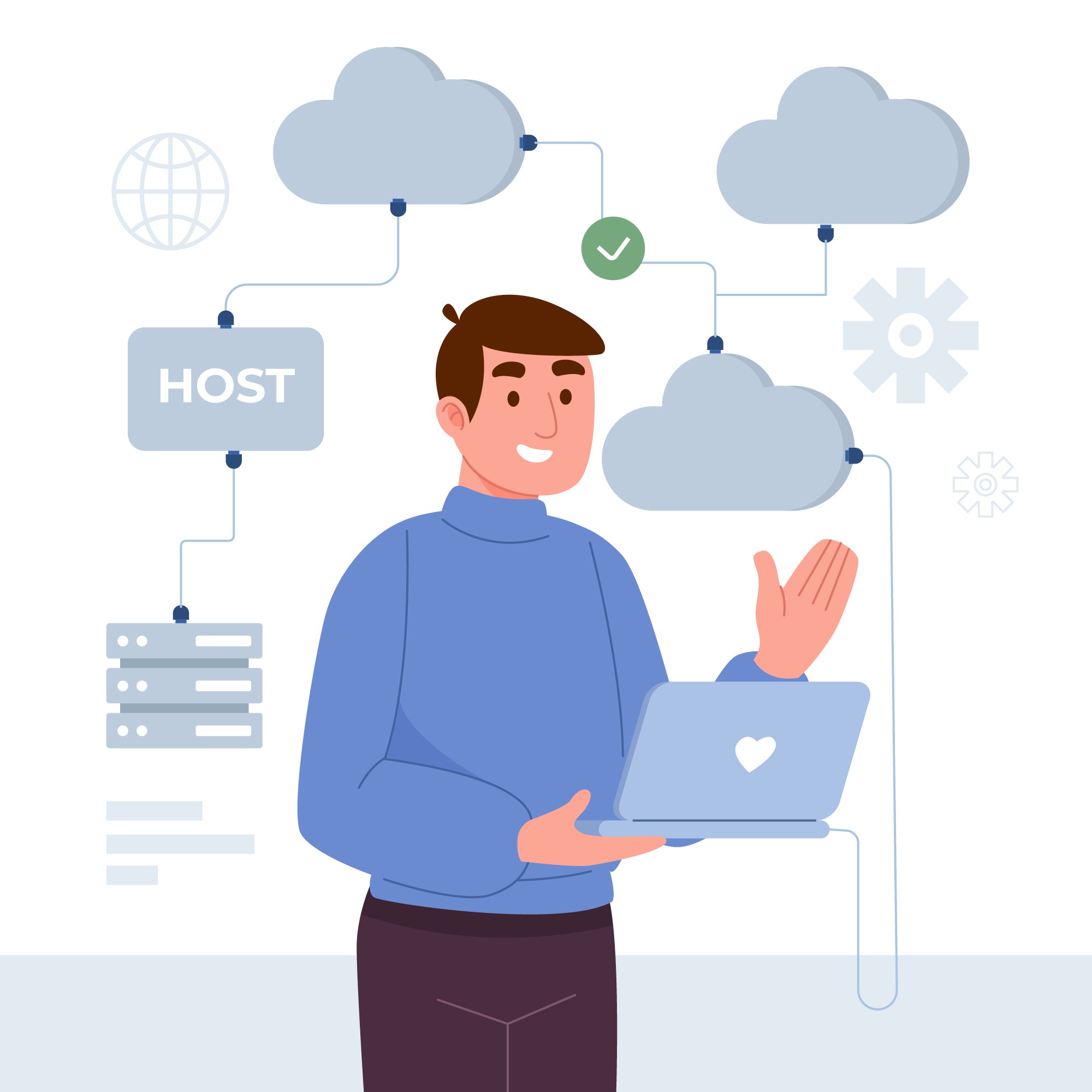How to Become an AWS DevOps Engineer: Step-by-Step Guide to Certifications and Skills
Oct 11, 2024

Jithin

How to Become an AWS DevOps Engineer: Your Complete Guide
In today’s fast-paced tech world, becoming an AWS DevOps Engineer can open doors to numerous opportunities. Are you ready to embark on a journey that could transform your career? Whether you're a tech enthusiast eager to get into cloud computing or someone already familiar with DevOps principles, this guide will walk you through the essential steps, skills, and certifications needed to become an AWS DevOps Engineer. Let's dive into the nook and corner of DevOps, AWS certification, and the career path that could lead to success!
Why DevOps Engineering Is the Next Big Thing?
Imagine a company trying to launch an app. They’ve got the code, but moving that code from development to production smoothly can be a nightmare without the right practices in place. That’s where DevOps engineers come in—like the bridge between developers and operations. With the rise of cloud computing, particularly platforms like AWS (Amazon Web Services), companies need skilled professionals to handle their infrastructure, automate processes, and ensure continuous integration and delivery.
DevOps isn’t just a buzzword. It has become a crucial part of software development, especially with the increasing reliance on cloud platforms. In fact, according to Wikipedia, DevOps focuses on automating and monitoring every phase of the software development life cycle, from coding to deployment. Sounds exciting, right?
What Does an AWS DevOps Engineer Do?
Let’s break it down. AWS DevOps engineers are IT professionals responsible for managing and optimizing cloud infrastructure on AWS. Their role blends cloud engineering, automation, and DevOps principles, meaning they must be fluent in tools, scripting, and AWS services. It’s not just about coding—AWS DevOps engineers also ensure continuous delivery, infrastructure as code (IaC), and automated testing, while improving collaboration between teams.
Key Responsibilities of an AWS DevOps Engineer:
Automating deployments: Implementing continuous integration and continuous delivery (CI/CD) pipelines.
Managing cloud infrastructure: Handling AWS services like EC2, S3, Lambda, and RDS.
Monitoring and optimizing: Using tools like CloudWatch and AWS X-Ray for performance monitoring.
Collaboration: Bridging the gap between software development and IT operations.
Ensuring security and compliance: Managing secure deployments in line with best practices.
Career Outlook: Why AWS DevOps Is a Smart Move
According to Wikipedia, Amazon Web Services (AWS) is the largest cloud provider globally. This makes AWS certifications like the AWS Certified DevOps Engineer-Professional incredibly valuable. Whether you are already in tech or looking to upskill, there is no perfect time to invest in DevOps.
Step-by-Step Guide to Becoming an AWS DevOps Engineer
Let’s map out the journey for you to go from where you are now to becoming a certified AWS DevOps Engineer.
1. Master the Basics of DevOps and AWS
Before you dive into the AWS-specific tools, you need to have a strong understanding of the fundamental concepts of DevOps. As Skillect’s DevOps Tutorial for Beginners highlights, learning the basics of DevOps—like automation, collaboration, and infrastructure as code (IaC)—is essential.
Additionally, get familiar with AWS services like EC2, S3, Lambda, and Elastic Beanstalk. This is where your cloud journey begins. Skillect offers courses that cover basics of both AWS and DevOps, ensuring you are building a solid foundation.
2. Take an AWS DevOps Course
The best way to solidify your knowledge and prepare for the certification is by enrolling in an AWS DevOps course. Courses typically offer hands-on labs and real-world projects, which are essential for learning cloud technologies.
You might be wondering, "What is the AWS DevOps certification cost in India?" Well, the AWS Certified DevOps Engineer-Professional exam costs around ₹26,500 in India, but prices may vary according to the learning platforms that you choose. Make sure to factor in study resources like books and online courses, which might add to your total investment.
3. Gain Hands-on Experience with AWS
Theory only takes you so far. To become an AWS DevOps engineer, practical experience is required. Whether it’s through setting up your own projects or contributing to open-source platforms, getting hands-on experience will solidify your understanding of AWS and DevOps tools. Experiment with setting up infrastructure as code using Terraform or AWS CloudFormation, automating tasks, and managing servers.
4. Learn DevOps Tools and Scripting Languages
DevOps engineers rely on a toolbox full of automation and collaboration tools. Some of the key DevOps tools you need to be familiar with include:
Jenkins: A CI/CD tool to automate the software delivery process.
Docker & Kubernetes: Containerization and Orchestration tools.
Ansible & Puppet: Configuration management tools.
Git: Version control.
In addition, learning scripting languages like Python or Ruby will help you automate tasks and integrate different AWS services. This will make you more versatile in handling complex infrastructures.
5. Prepare for the AWS Certified DevOps Engineer Exam
You’re now ready to advance your career by getting certified. The AWS DevOps certification is one of the most reputed certification in the cloud computing industry. According to Skillect’s AWS DevOps Certification Guide, the exam covers topics like automation, monitoring, and CI/CD on AWS. Here's what you should focus on:
Infrastructure as Code: Learn how to use CloudFormation and Terraform.
Monitoring & Logging: Familiarize yourself with CloudWatch, AWS X-Ray, and other monitoring tools.
CI/CD Pipelines: Understand how to automate deployments using AWS services.
Security: Learn best practices for securing AWS environments.
6. Work on Real-World Projects
The final step is to work on real-world projects that showcase your skills. This is where your hands-on experience truly pays off. Consider building a full DevOps pipeline using Jenkins and Docker on AWS, or deploying an application using AWS Elastic Beanstalk. By working on actual projects, you will not only gain experience but also have a fine portfolio to show potential employers.
Career Opportunities and Salary for AWS DevOps Engineers
AWS DevOps Engineers are in high demand, with salaries that reflect their importance in the tech industry. According to Glassdoor, the average salary for an AWS DevOps Engineer in India ranges from ₹12 lakhs to ₹30 lakhs per year, depending on the experience and location.
Companies that use AWS are always looking for skilled DevOps engineers to improve their deployment processes, optimize cloud environments, and automate workflows. By mastering the tools and obtaining an AWS certification, you’ll be positioning yourself for long-term job growth in the DevOps space.
Job Roles for AWS DevOps Engineers
Once you are certified, a variety of roles open up to you:
DevOps Engineer: Responsible for automating workflows and improving infrastructure.
Cloud Engineer: Focused on deploying and managing cloud services on AWS.
Infrastructure Engineer: Handles infrastructure as code and manages cloud resources.
Site Reliability Engineer (SRE): Focuses on the reliability and performance of large-scale applications.
Conclusion: Your Next Step in Becoming an AWS DevOps Engineer
Becoming an AWS DevOps Engineer is a journey that requires dedication, hands-on experience, and certification. But the payoff is worth all your efforts. With cloud computing becoming the backbone of modern IT infrastructure, and DevOps being central to how companies develop and deploy software, your skills will be in demand.
So, are you ready to take the leap? If you’re eager to jumpstart your career in AWS DevOps, apply today through Skillect and join the growing community of learners who are shaping the future of tech.
